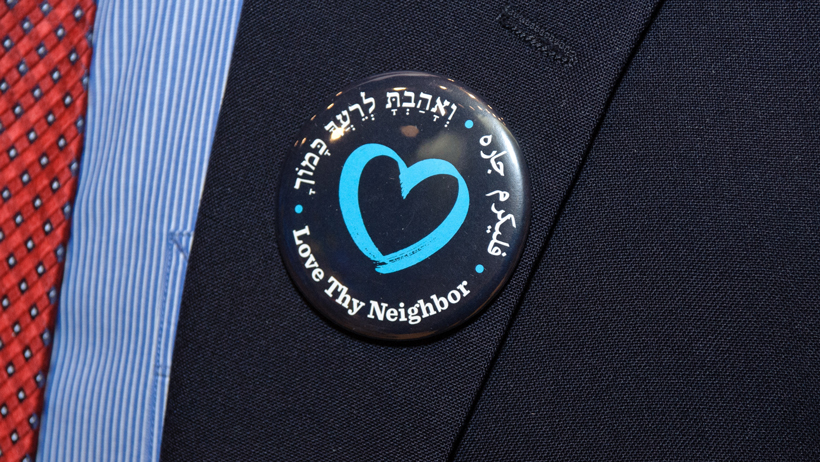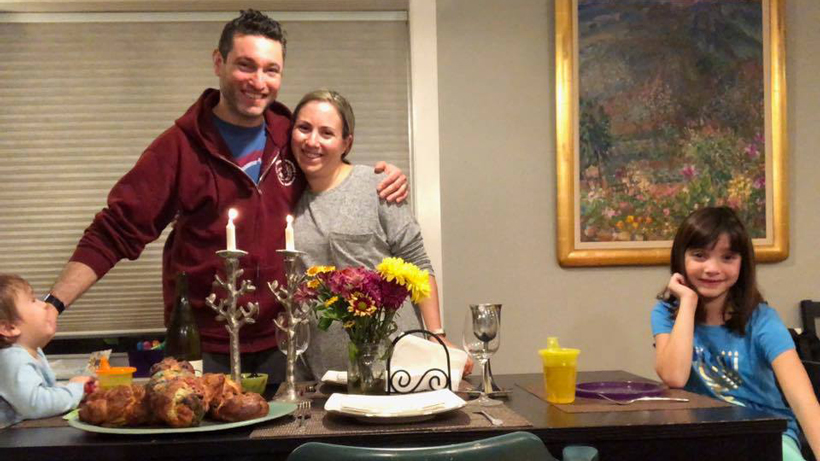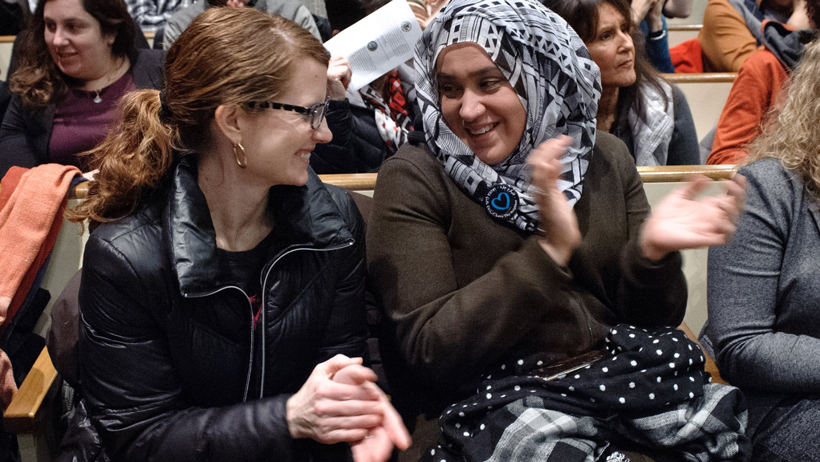An energetic current ran through the sixth floor of the JUF's headquarters in the Loop on a quiet Monday morning in August.
Nearly 60 women, several of whom were described as "the heavy hitters" of the city's Jewish community by the Israel Education Center's Emily White, gathered together to discuss where we stand facing anti-Semitism today and how to be proactive moving forward. It is an anti-Semitism not totally unlike what we've seen in the past, yet, one that presents a new set of challenges along with it, especially in an age fraught with identity politics and in a country grappling with American Exceptionalism. It seems that we Jews can't find our bearings in this mess.
All the women in the room seemed hyper aware of the urgency of our situation. After a weekend filled with gun violence, both locally and nationally, and a year filled with anti-Semitic events that ranged from mildly concerning (Rep. Ilhan Omar's "Benjamins" tweet) to heartbreaking and horrific (Pittsburgh and Poway), the participants sat down at their tables with brows furrowed and lips formed into tense lines. I was among them.
As I approach my Junior year at DePaul University and hope to enter the political sphere a few years down the road, I feel the weight of the world upon me with every step I take. For many students my age, the increasingly violent nature of today's anti-Semitism feels as avoidable as it does terrifying. As a progressive and a Jew, I, like others, yearn for better conversations without emotional responses, and feel intrinsically intertwined in the tangle of current affairs, yet frequently alienated from the conversation.
When a Professor at DePaul was called out for making inflammatory and racist statements on the Israeli-Palestinian conflict, I, among other Jewish students at my university, felt invisible when attempting to have constructive conversations on the matter. I got the impression that people simply did not want to hear that we were against him, because they wanted to be against us. The helpless sensation I felt is far too common for Jewish University students in America, as progressive circles continue to push us out of discussions that we yearn to be a part of.
Rabbi Shoshanah Conover of Temple Sholom facilitated the event, which was organized by JUF's Jewish Community Relations Council, the Jewish Women's Foundation of Metropolitan Chicago, and National Council of Jewish Women-North Shore Section.
Drawing on the work of Shalom Hartman Institute's Mijal Bitton, Conover identified the disconnect she sees between the way Jews view ourselves and the way others view us, and the ways in which Jews are estranged from both sides of the political aisle. We don't fit in with the right's vision of American nationalism, nor do we count as full allies to minority communities on the left due to the perceived whiteness of America's majority Ashkenazi Jewish community. The conversation around the Israeli-Palestinian conflict further complicates the situation, to say the least. The potential solution is a multi-step process and includes the need for the Ashkenazi Jews of our community to recognize our privilege. While we understand how different our struggles have been, we believe that we must rise to support each other in the face of violence or injustice.
JCRC Director of Domestic Affairs Jane Charney shared about the importance of storytelling using Harvard scholar Marshall Ganz' public narrative concept. She focused on the importance of sharing our stories with other marginalized groups, but beyond that, on the importance of listening to their stories, because building trust is essential to build alliances, and because to be Jewish is to see yourself as the stranger.
Taking this practice onto college campuses like my own would be beneficial to say the least. As an intern of the JUF's Research Training Internship (RTI) , Sara Grostern put it, "[it's easy to feel] like you're stuck in an echo chamber" when sharing personal narratives and opinions within the politically homogenous environment of one's school.
JUF Teen Philanthropy and Leadership Director Beckee Birger continued the conversation. She shared her personal experience as a Jewish woman of color, which has given her an ability to understand the intersection between our stories and to educate effectively. Demonstrating her devotion to equipping future generations with the skills to create social change, Birger leads the JUF's RTI program for female identifying high-school students like Grostern.
Conover then lead us through a Chevruta or traditional Jewish partner-learning exercise, and then into an event-wide discussion where participants questioned our responsibility to other minority groups, holding ourselves accountable for the actions of other Jews, and our potential responsibility for other Jews' actions. The discussion was followed by an insightful visioning exercise lead by recent alumna of RTI and authors of the past year's RTI Report, which focused on anti-Semitism.
The alumnae, two of whom are entering the eleventh grade and one of whom will be a freshman in college this year, were wise beyond their years. Each shared her curated advice on actionable ways to combat anti-Semitism in everyday life, and then engaged us in a hope-filled discussion on moving forward. Women at my table identified the pro-active nature of the alumnae's advice and elaborated on how necessary it is to build communities around unity and avoid fixating on our differences.
I expected to leave the event with that sinking feeling in my stomach and return to my desk more discouraged than before-not to mention exhausted from yet another frustrating conversation that went nowhere. But I didn't.
What the event was not, was a pity party, where we dissected every anti-Semitic event of the past two years and discussed how awful its perpetrators were. It was a mutual call for decisive action, nuanced education, and insightful conversations between citizens and legislators. It was a reminder to someone who feels hardened by one heartbreaking headline after another, that I am not alone in a struggle that feels increasingly alienating.
The discussion about alliances at the event reminded me of when, shortly after the Pittsburgh Tree of Life Synagogue shooting happened, my campus's Muslim Life club gave the Jewish Life club signed cards of sympathy and countless words of support, and how we returned the favor months later after the shootings at the Christchurch mosques. In times of chaos and struggle, we realize just how similar we all are, and that may be the thing that saves us-hopefully, before it's too late.






.jpg)



